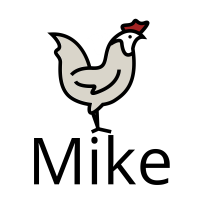For me, it may be that the toilet paper roll needs to have the open end away from the wall. I don’t want to reach under the roll to take a piece! That’s ludicrous!
That or my recent addiction to correcting people when they use “less” when they should use “fewer”


I don’t care what Big Dictionary has to say about it, “literally” does NOT mean “figuratively.”
If “literally” means “figuratively,” then we literally have no word for “literally.”
Literally doesn’t mean figuratively, but acting like people can’t use sarcasm or hyperbole with exactly one word (“literally”) is silly.
We’ve already gone through “very”, “truly”, “really”, “actually”, and probably many more. I just don’t think humans were meant to have an antonym for “figuratively”. It’s too much power for any single person to wield.
we do though. it’s “literally”. just because a word is used in a figurative sense it doesn’t lose its literal meaning. and literally in itself is not some magical word that is immune from figurative use. it’s just another word.
I think they’re more taking issue with that some dictionaries have seen the figurative use of the word and added figurative as a definition for the word.
“Sorry I’m late, Traffic was murder”.
“Someone tried to kill you in traffic?!”
https://www.merriam-webster.com/dictionary/murder
Data, is that you? How do you not understand what murder means in that context? If you do something and someone says “you killed it!” do you turn yourself in to the police or do you plan escaping to another country?
you mean doing their job
I’m with you. For me it’s decimate to mean " destroy most of" instead of destroy 10%. Deci literally means one tenth. How much do you think a deciliter is?
You can decimate an opposing army an infinite number of times and never defeat them. 🤷
The last soldier who’s lost most of their body one tenth at a time would like to disagree with you
the word decimate could be interpreted as “reduce to tenth” that would make the act “destroy 90% of”
“Island” only has an ‘s’ as a stylistic choice writers started to use to make it look more Latin. The word “Island” does not have any Latin roots.
Language changes. Trying to fight it just makes you an old man yelling at the cloud.
It’s worth pointing out that you just used the word for “literally” and we knew which sense of the word you meant through context. Just like the verb “dust” can mean to put a layer of small particles on something but can also mean to remove the small particles from something. Humans are able to sort these things out.
However, one of the best things about language is that if a need actually arises for more clarity about “literalness”, a solution will naturally emerge to address it.
Even the word “literal” started out as a word that pertained specifically to the written word, and scholarly things, and its sense evolved to refer to things not necessarily written down, to the present meaning of “the most straightforward interpretation of what I’m saying”. A need arose and a word filled the need.